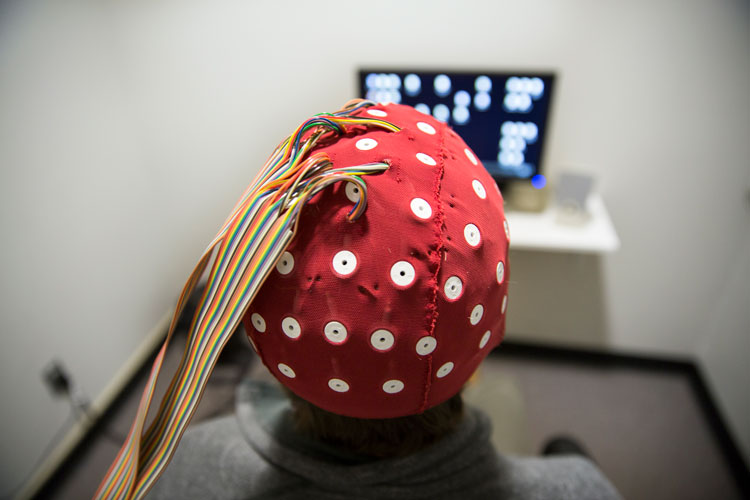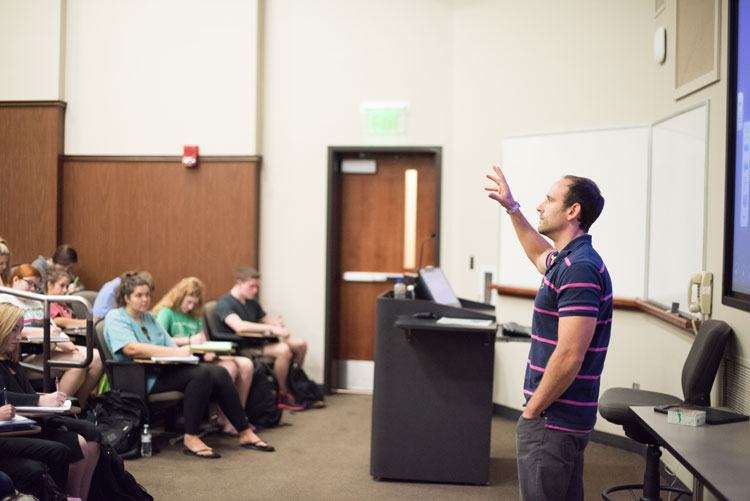The goal of the social psychology program is to train individuals for a variety of academic and applied settings. Research emphases within the concentration include attitudes, affect and motivation, goals and self-regulation, social cognition, social neuroscience, social-clinical interface, social-emotional development, preventive health, emotion-cognition interaction, and program evaluation.
During the program, students work closely with a specific faculty member who serves as the student’s research mentor. The program offers coursework covering a broad background in psychology, in-depth study of research methodology and statistics, and advanced coursework in Social Psychology. Students attend a weekly brown-bag research seminar, are provided with a guided introduction to college-level teaching.




“Psychological research serves as an invaluable tool in exploring and confronting the origins and outcomes of pervasive social inequities. My UA education is equipping me with the skills necessary to critically answer the question that matters most to me: how do we create a safer world for marginalized communities? My educational journey is positioning me to better operate within my life’s purpose: deconstructing the underpinnings of social injustice and constructing feasible resolutions for enhanced quality of life for minority populations.”
-Joshua Baker, Social Psychology PhD Student

Motivated Reasoning|Metascience |Attitudes and Beliefs|Political Psychology|Research Methods

Self-Control | Motivation | Electroencephalography (EEG)
The Social program is highly focused on research. The program uses a mentor model for research training in which students work with a specific faculty member whose research focus matches the students’ interests, although cross-lab collaboration is also encouraged. Students typically complete the program in 5 years.
| Year 1 | Year 2 | Year 3 | Year 4 |
|---|---|---|---|
| Coursework in research methods, statistics, psychology seminars | Complete master’s thesis | Begin dissertation research | Dissertation research |
| First-year project | Continued coursework | Teaching of Psychology course | Teaching as a primary instructor |
| Master’s thesis research |
Students in our program receive full funding for four academic years (this may be fewer for students entering with a master’s degree). Funding includes a monthly stipend for nine months, health insurance, and a full-tuition waiver. Stipends vary based on the type of financial support each student receives. Types of financial support include graduate assistantships (Research Assistant, Teaching Assistant), fellowships, or scholarships. Historically, funding has been available to support students in their fifth year, as well as during summers.
Funding is also provided by the department and the graduate school to travel to conferences each year and to conduct research.
Each year, the Graduate School also awards some fellowships to incoming students, which supplements the standard stipend. These include the Graduate Council Fellowship (GCF), McNair Graduate Fellowship, and the National Alumni Association License Tag Fellowship. Students do not apply for these fellowships, but rather are nominated or chosen by faculty after the student has been admitted into the program.